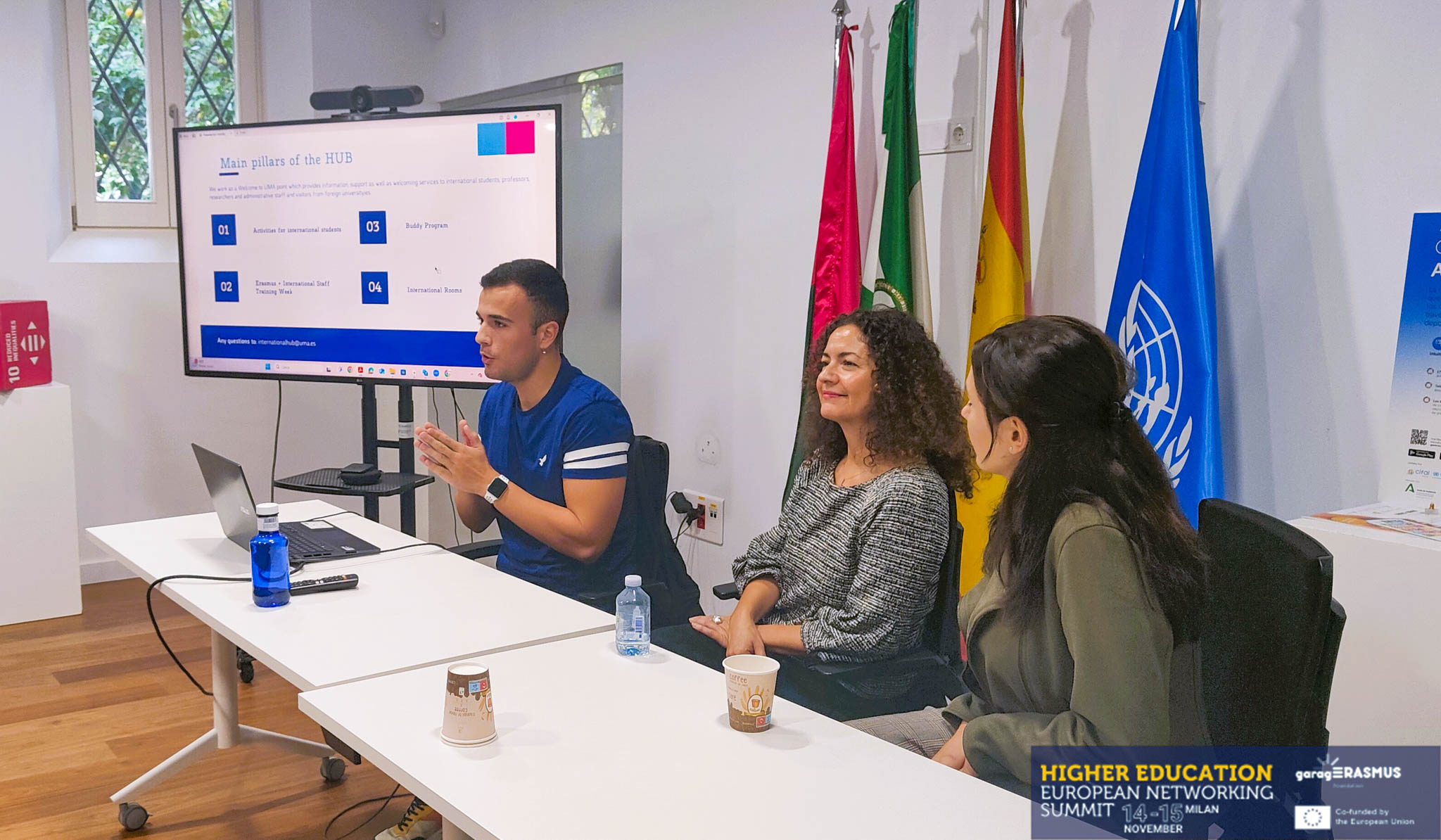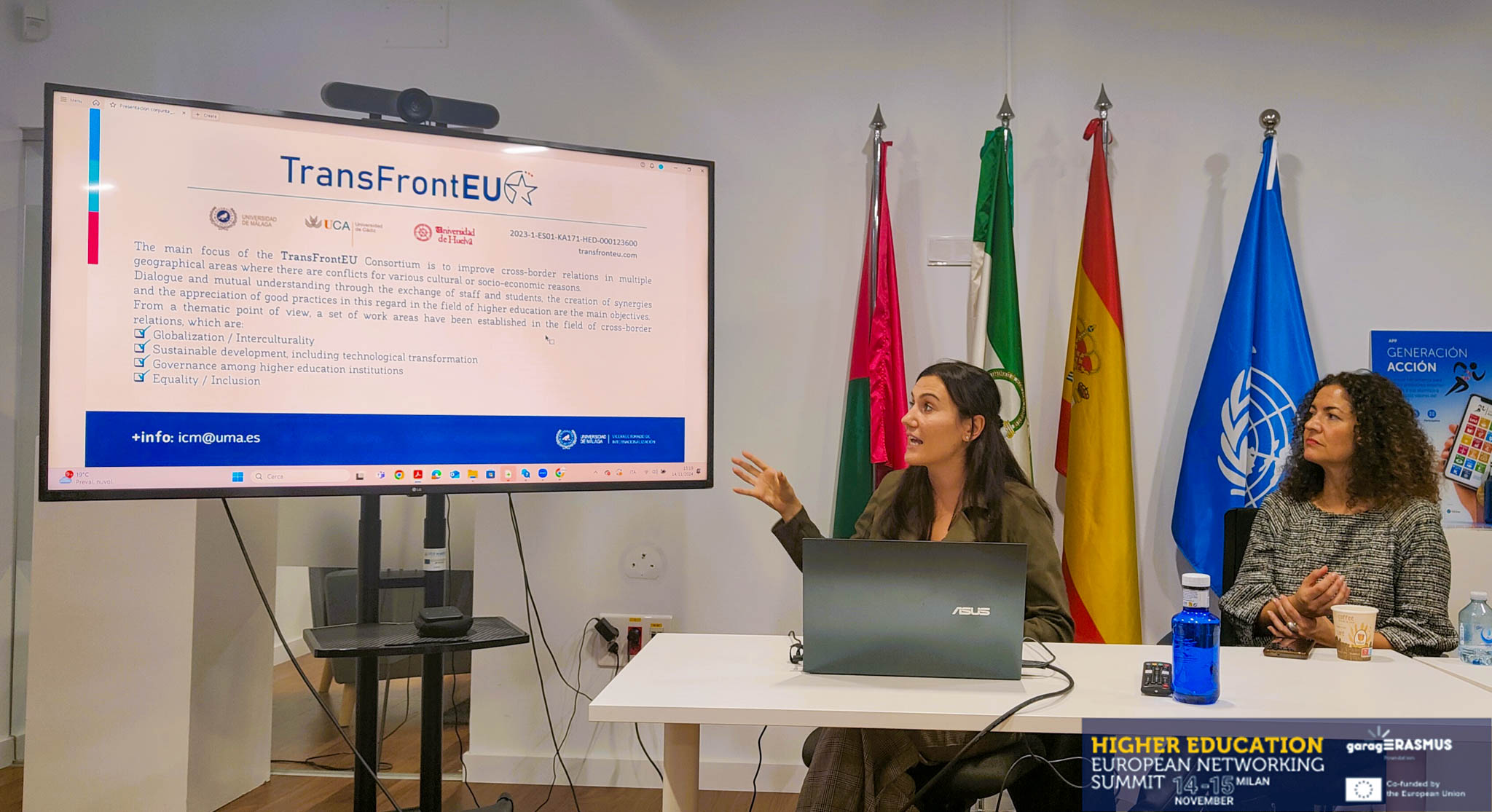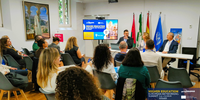The International Relations Office of the UMA participates in the ‘European Higher Education Networking Summit’ organised by GaragErasmus
 1
/
1
1
/
1

UN House - United Nations Project Office in Malaga hosted the Higher Education European Networking Summit organised by GaragErasmus with the collaboration of the Vice-Dean for Mobility, International Projection and Communication of the Faculty of Tourism, Dr. Mª Jesús Carrasco, and the participation of the International Relations Office.
The event was opened by Fabrizio Bitetto, President of the GaragErasmus Foundation, together with Zaida Díaz Cabiale, Vice-Chancellor for Internationalisation of the University of Málaga. The Vice-Rector put into context the UMA's internationalisation strategy focused on six key objectives that seek to consolidate its global position and foster an inclusive and sustainable environment. This strategy includes increasing the presence in international academic networks, boosting the mobility of the university community, updating the language policy to attract foreign talent, and improving management through the digitalisation of processes, all with the aim of optimising educational quality and strengthening its competitiveness.
For his part, the president of the foundation highlighted the crucial role that GaragErasmus plays in Higher Education Institutions (HEIs) by acting as a bridge that connects the Erasmus alumni community with professional opportunities, academic collaborations and innovative projects. This foundation fosters the creation of a strong network of former mobility programme participants, strengthening the links between universities, students and the labour market. Through initiatives that foster employability and intercultural collaboration, it strengthens its capacity to promote a more globalised education that is connected to the contemporary demands of society and the economy.
For their part, those responsible for the mobility programmes of the UMA presented the opportunities available to carry out an exchange abroad, whether for study or internships. In this context, David Yuste presented the functions of the UMA International HUB (Office for the Integration of the International Community). In addition, Magdalena Pieczarka presented the KA171 programme and TransfronTEU (Consortium of Universities), while Lilian Barranco, coordinator of the KA131 programme, explained in detail the opportunities of the Erasmus programme for both incoming and outgoing students.
The event featured joint project workshops to strengthen networks and foster cooperation between higher education institutions, as well as a presentation of the best proposals in an interactive voting format. The second day explored the impact of Erasmus alumni on social change and the promotion of mobility as a tool for knowledge and conflict resolution, with interventions from academics and former officials. The summit concluded with the presentation of new project ideas for 2025 and a summary of upcoming meetings.
 ...
...





